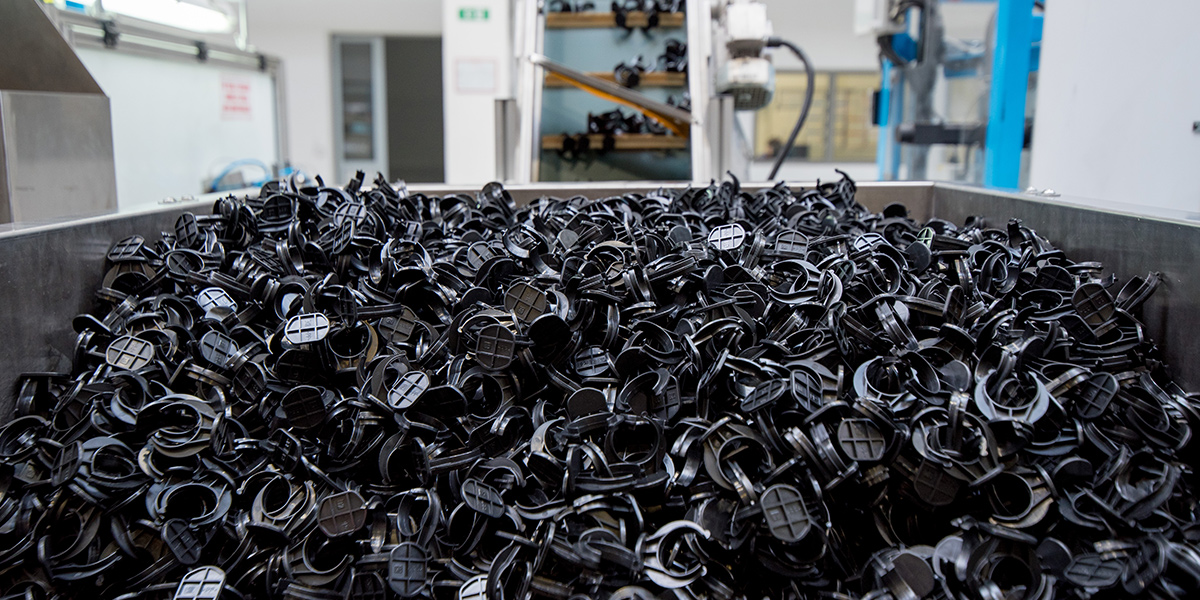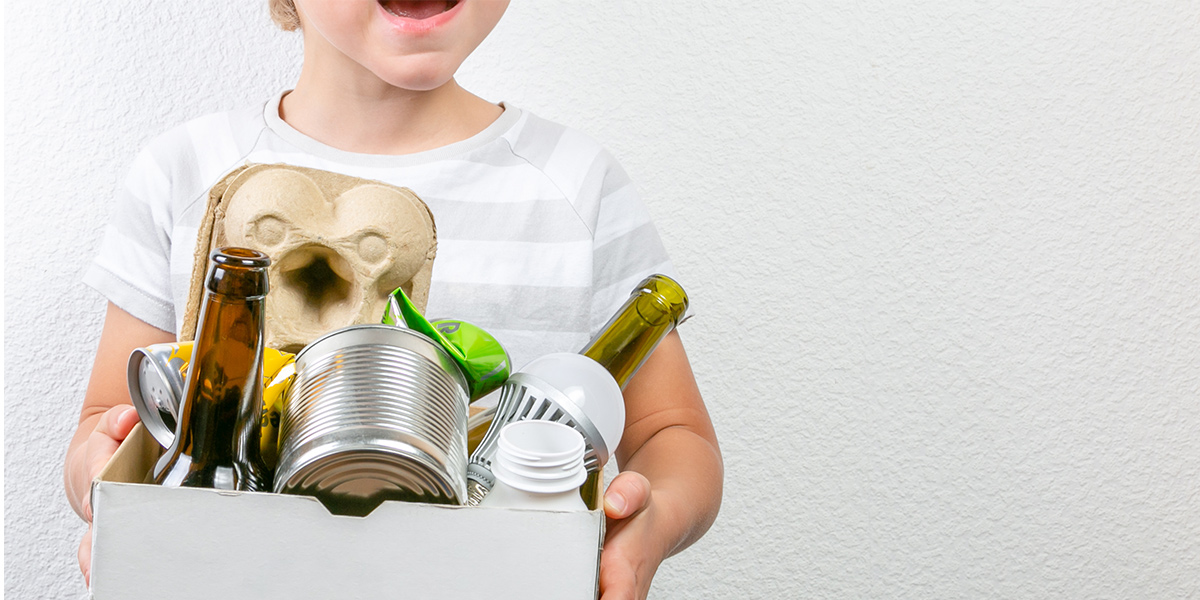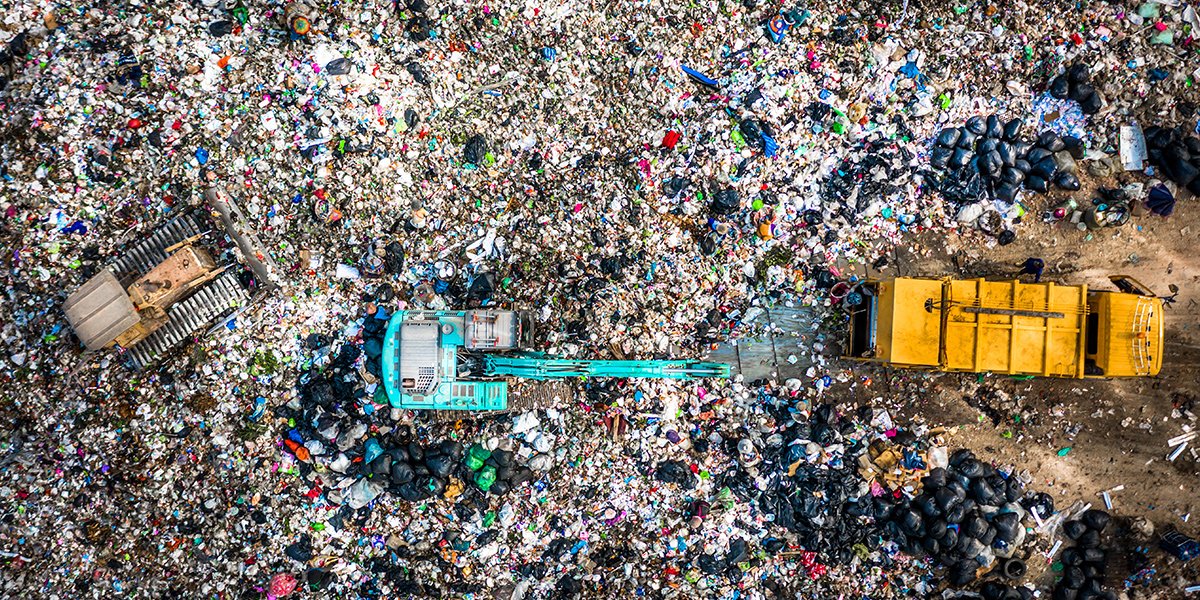The use of sustainable materials such as bio-based and recycled plastics is increasing; although many people still believe they are only suitable for undemanding applications like packaging and non-technical plastic parts. However, the rapid development in recent years have given us very promising results, which means that sustainable materials can also be used in more demanding industries like furniture manufacturing or even medical equipment.
Download our e-book about the sustainable materials we use in our manufacturing process >>
To prove our claims, we have prepared a list of five widespread presumptions about the superiority of conventional over sustainable materials and provide comprehensive evidence why these statements are merely myths.

Myth #1: The quality of sustainable materials is lower than that of conventional ones in terms of physical characteristics
There is a common misconception between biobased and biodegradable materials. The term biobased means only that material is obtained from renewable resources (usually plants), while the term biodegradable means that under the presence of microorganisms (found in nature) the material will decompose faster than conventional non-biodegradable material. There is also a common belief that biodegradation of plastic material is always desired in terms of sustainability, however, scientific studies suggest that proper waste management combined with recycling is a more sustainable approach compared to the end of life by biodegradation, since it preserves the precious resources.
There are two major advantages of using biobased materials in plastic products. The first advantage is that the production of these materials is truly sustainable, as it doesn’t deplete the limited fossil resources. The second advantage is that biobased materials can be mechanically recycled in the same way as conventional materials, thus promoting the concept of a circular economy. However, recycling can’t be repeated indefinitely due to degradation processes occurring during the mechanical recycling process, and sooner or later the material must come to the end of its life cycle, usually by incineration. When biobased material gets incinerated it releases into an atmosphere the carbon dioxide that has been recently accumulated into material from the atmosphere by plants, thus being carbon neutral.
Myth #2: Bio-based materials have a shorter lifespan than conventional materials
Science shows us that bio-based materials can have the same chemical structure as their fossil-based counterparts, which means their physical characteristics are entirely equivalent. What's more, in some cases physical characteristics of biobased materials are even superior to the similar fossil-based, which has been proven in the recent study carried out by the Faculty of Mechanical Engineering at the University of Ljubljana.
Scientists compared the performance of polymeric gears produced from conventional fossil-based Polyoxymethylene (POM) and Polyamide 66 (PA 66) and a novel biobased Polyamide 6.10 (PA 6.10) material and the results were more than encouraging. The biobased (PA 6.10) gears exhibited a 3,5-times longer lifespan than POM ones and a 10-times longer lifespan than PA 66 gears when tested under identical conditions. This strongly indicates great potential for replacing fossil-based plastics with more sustainable materials not just in the case of gear applications, but also in other industries with severe operational conditions.

Myth #3: Recycled materials are only suitable for undemanding products
To be completely honest, this myth can’t be debunked as easily since the usage of recycled plastics remains limited in some industries, most notably in food packaging. In terms of sanitary and technical issues, the re-use of plastic in packaging that has direct contact with food presents greater challenges than certain other materials like glass or metal.
Download our e-book about the sustainable materials we use in our manufacturing process >>
That said, the beverage industry claims its interest in the broader use of recycled PET since it reduces CO2 emissions and the environmental impact in general. At this moment several brands already offer bottles in partially recycled PET and the situation is likely to improve even more in the near future since some reports suggest that certain recycling are already capable of supplying recycled PET with a purity level that is equivalent to or higher than that of virgin PET.

Myth #4: Recycled materials only come in black color
Recycled plastic material is usually made from a mix of numerous plastic objects which come in various colors. Once they are mixed, the material gets a dark brown tone which prevents the items made from it to be colored anything else than brown or black. However, new technological advances in this field now also enable the production of recycled plastic material in white color, which allows us to add colorants, thus producing plastic products in various colors. Skaza’s has already timed up with partners who can provide us with such advanced recycled sustainable materials, which we use for manufacturing colorful seat shells.
Myth #5: Characteristics of recycled materials are not equivalent to those of conventional ones
This might have been true until a few years ago, but new approaches to reusing plastics are emerging every day and debunking this myth. One of the most promising solutions seems to be chemical recycling, which enables the production of high-quality sustainable materials. They can be used as drop-in solutions in all current applications of fossil-based alternatives. Furthermore, chemical recycling also gives us the opportunity to recycle a wider range of waste plastics than what is possible with traditional (mechanical) recycling.
We hope these arguments were convincing enough to make you believe the future of plastic manufacturing is brighter than it looks. To further support our claims on the superiority of sustainable materials (biobased and recycled ones) over fossil-based plastic, we invite you to check out the wide range of our projects. You can see that we developed unique solutions to some of the biggest challenges society and our planet are facing.
Find out more about how we incorporate sustainable materials into our production process. Fill in the form and download the e-book with educational content.


